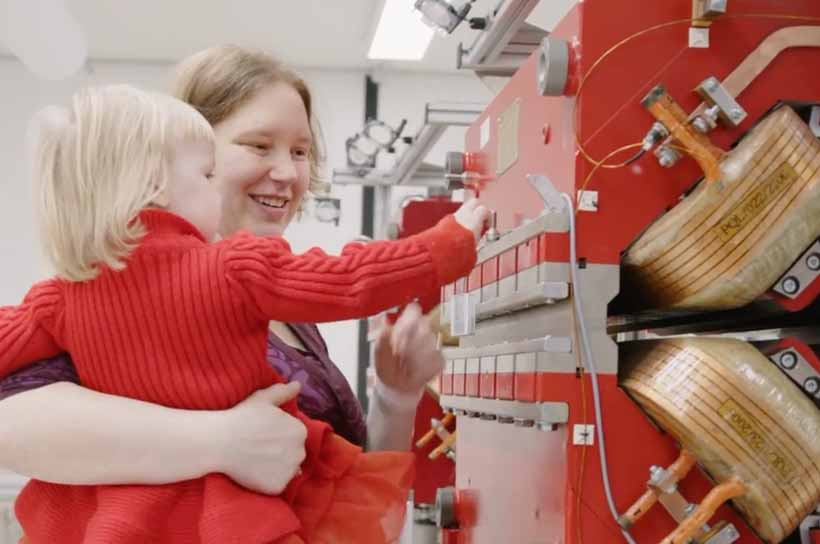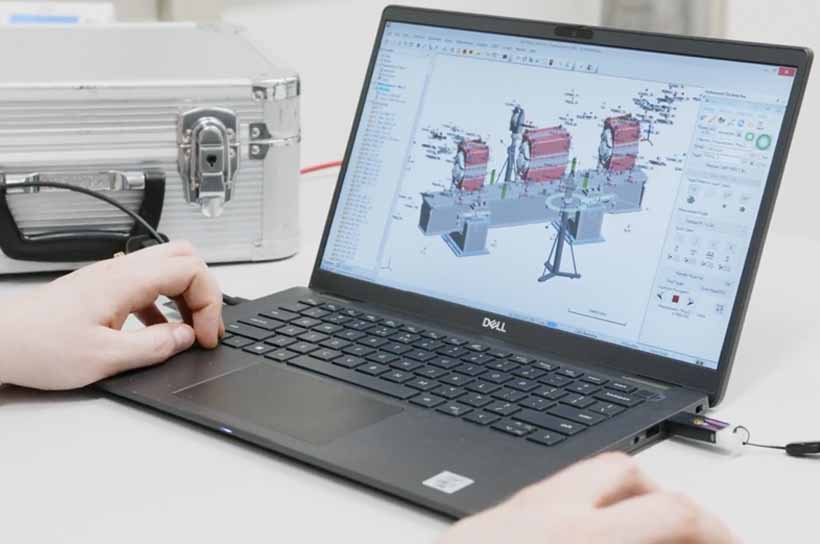
The heart of PETRA IV
Jana Barker and her team use high-precision instruments to check important components of the new facility.
Precision right from the start
PETRA IV consists of an accelerator ring with a circumference of 2.3 kilometres, with powerful magnets that keep the particles on their circular path and accelerator structures that bring the particles to high energies. More than 4000 magnets of various types and sizes guide the particle beams along the circular path of the accelerator: permanent magnets and quadrupole magnets, to focus the beams. The magnets ensure that the particle beam is literally squeezed together.
The magnets and other components of the ring stand on support frames called girders. The girders, each of which is around three to five metres long, need to meet some special requirements: The oscillations and vibrations of the frames must be minimal. This is achieved by optimising the mechanically rigid lightweight constructions so that the electron beam can be guided precisely through the magnets as it circulates in the ring accelerator.
The PETRA IV beam should not deviate from its optimal trajectory by more than 100 nanometres, that is one ten-thousandth of a millimetre.

The magnets and girders are assembled outside the ring. A lorry with a crane then moves the steel frames, weighing several tonnes, into position. Specialists at DESY therefore examine beforehand what possible discrepancies could arise if the components are damaged during transport.
One of them is engineer Jana Barker. She uses high-precision instruments to check the deviations of the magnets on the girder after transport.


Heidrun Hillen
I am happy to answer your questions about PETRA IV.


